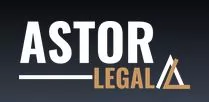- in United States
- within Law Department Performance, Media, Telecoms, IT and Entertainment topic(s)
A good behaviour licence in NSW is a topic of much conjecture. There are different requirements in different states for such a licence.
This extends to the application process as well as the conditions while a person is subject to such a licence.
What is a Good Behaviour Licence?
A good behaviour licence allows a person who receives 13 demerit points (or 14 in the case of a professional driver) to avoid a suspension by undergoing a 12 month period where they only have two demerit points.
Section 36 of the Road Transport Act 2013 (NSW) confirms that a driver who has been served with a notice of suspension from Transport for NSW can avoid a suspension by electing to undergo a period of good behaviour.
You are eligible for a good behaviour licence if:
- your suspension letter states you can apply for the good behaviour period
- the suspension period has not started
- you hold at least one unrestricted NSW Driver's Licence.
You are not eligible if:
- your suspension letter does not mention the good behaviour period
- you only hold a provisional or learner licence.
How does a good behaviour licence work?
A good behaviour licence is available to drivers who hold an unrestricted licence and exceed their demerit point limit. The suspension letter must state that the driver is eligible to apply for a good behaviour period to apply for one online. The driver must apply for a good behaviour license before their suspension period begins.
This is different to 'P' and 'L' plate drivers who automatically receive the right to appeal their suspension to the court within 28 days of receiving their notice.
The period of good behaviour starts from the scheduled commencement of the suspension.
For some suspended drivers, passing the driver knowledge test is necessary. In such cases, the good behaviour period begins on the suspension date. If the test is taken afterwards, it starts on the day of passing the knowledge test.
How to Apply for a Good Behaviour Licence?
You can apply for a good behaviour licence by making an application online or at a Service NSW centre. If you are submitting the application online it should be filed at least two business days before the suspension date.
What are the Conditions Of A Good Behaviour Licence?
The conditions of a good behaviour licence are that the driver must not receive 2 demerit points (or more) over 12 months. After a suspension period, all demerit points are removed from the traffic record, unless the driver receives one demerit point during their good behaviour period, which will continue to appear on their record.
Breach of Good Behaviour Licence
If you breach a good behaviour licence, you will be suspended for twice the original period. The original suspension period and breach suspension period are calculated by the number of demerit points accrued.
| Demerit Points | Original Suspension | Suspension if Good Behaviour Licence Breached |
| 13 to 15 points | 3 months | 6 months |
| 16 to 19 points | 4 months | 8 months |
| 20+ points | 5 months | 10 months |
The only way you can avoid a suspension if you breach a good behaviour licence is by electing the fine to court without paying it and either being found not guilty or pleading guilty and seeking a Section 10.
Can I get a work licence in NSW?
Contrary to popular belief, you cannot get a "work licence" in NSW.
If you are facing a driver licence suspension, you are prohibited from driving for any purpose, including work-related activities. Driving while suspended is a serious offence which carries licence disqualifications and jail time as penalties.
How to Avoid a Driver Licence Suspension?
You can avoid a driver's license suspension by electing to go to court. You can plead 'not guilty' and argue you did not commit the offence. Alternatively, you can plead guilty and seek a Section 10 dismissal or Conditional Release Order (CRO) without conviction. If either of these are granted, then you will not incur the demerit points for the offence.
To elect the fine to court, you must possess either the original infringement notice or the penalty notice.
The court considers various factors in determining whether or not to record a conviction, including your traffic record, the necessity of a license for you, your overall character, the duration of your good behaviour licence, the gravity of the offence and whether you have completed a traffic offenders program. An experienced licence appeal lawyer will be able to assist you with the preparation of the relevant documents and argue on your behalf in court. You can contact Astor Legal on (02) 7804 2823 or email us at info@astorlegal.com.au.
A CRO without conviction is typically used for first-time or minor offences where the offender is not likely to pose a threat to the community. A CRO allows the court to place conditions such as abstaining from drugs and alcohol, participating in programs, or implementing suitable restrictions.


